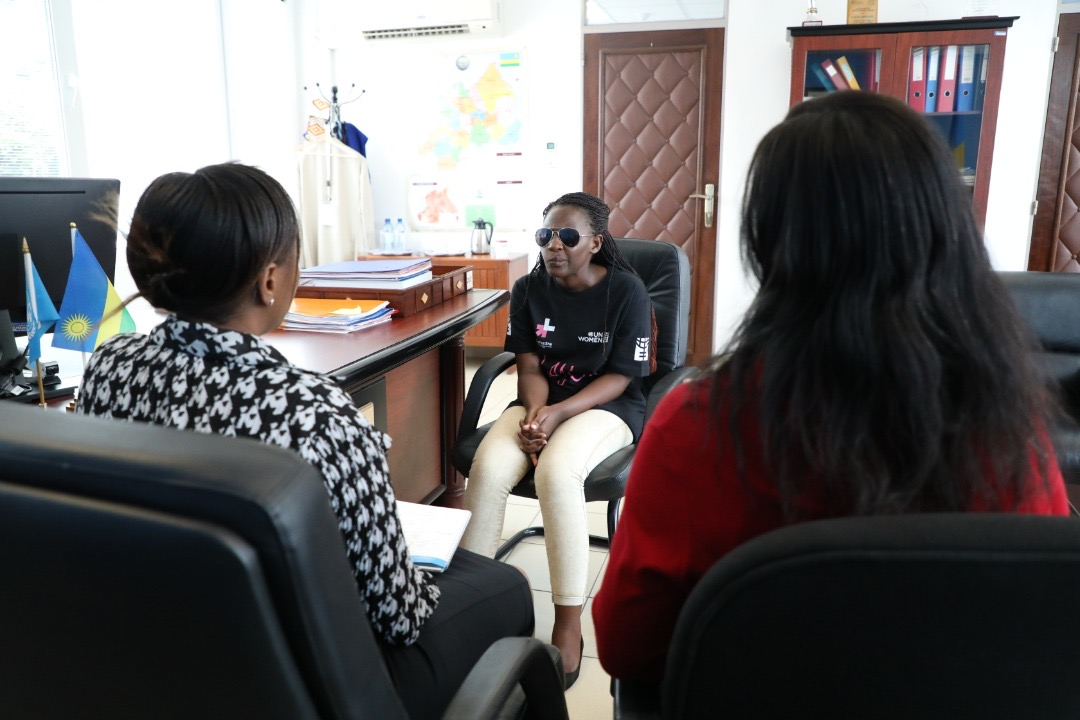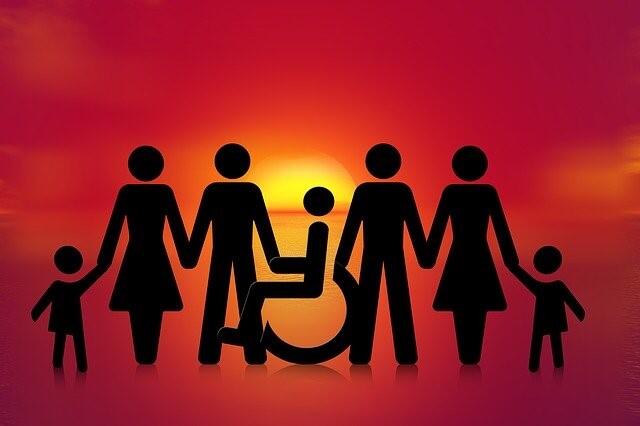Protecting Sexual and Reproductive Health and Rights for All
WOMEN AND GIRLS WITH DISABILITIES AT HIGHER RISK
As Rwanda and the World take decisive action to combat the COVID-19 outbreak, certain populations such as those with disability may be impacted more significantly. Persons with disabilities face even greater inequalities in accessing healthcare during the pandemic including Sexual and Reproductive Health (SRH) services, due to inaccessibility to health information as well as physical unattainability and communication barriers.
Additionally, containment measures to prevent transmission such as social distancing and self-isolation can be impossible for those who rely on the support of others to eat, dress and bath - resulting in disruptions in vital services for many persons living with disabilities.
Millions of young people around the world lack access to sexual and reproductive health, including family planning. The situation is even more challenging for women and young girls with disabilities, who are often unaware that they, too, have a right to make choices about their own health and sexuality.
According to Anisie Byukusenge, a young visually-impaired advocate for SRH & Rights for persons with disabilities, lack of information about SRH is one of the biggest challenges that teenagers and young people with disabilities are facing.
“When we are growing up, our parents don’t think that we could be sexually active, reason why many teenagers and young people with disabilities don’t really have information about SRH, they would rely on rumors, sometimes from those who want to manipulate them and use them for sex.” She said.
Throughout COVID-19 crisis, persons with disabilities face more discrimination, violence, and barriers to accessing information, education and services related to Gender-Based Violence (GBV) and sexual and reproductive health. Physical access to SRH services is a challenge to them, due to the fact that transport means such as moto-taxi have been disrupted, and it is complex to access other public transport services such as buses or taxis, which are costly in Rwanda.
“The only available option nearby is usually pharmacies, which can provide condoms or treatments for STIs, but they do not provide any medical counselling or recommendation and they are costly; as a result, many would rather avoid seeking treatment or SRH commodities” Said Anisie
During COVID-19, GBV among women and girls with disabilities increases due to social isolation, disrupted routines and if caregivers can't reach them.
“While being at home in lockdown, loneliness may lead to a lot of challenges and disturbances. If you don't have very strong self-esteem and decision making skills, you can easily feel depressed and lonely and in that case it can be easy to be manipulated or even experience violence”. Anisie said.

“Many Parents/guardians of young girls with disabilities usually think that no one can have sexual desire towards them so they think the girls are safe thus don’t pay attention. Which makes it easy for a neighbor, house helpers or even a stranger to abuse them, especially those with severe disabilities who are not able to defend themselves. Parents should be more careful and protect their children, especially teenagers with disabilities” She added.
According to the 2012 Population and Housing Census, 446,453 persons with disabilities aged five and above are living in Rwanda, out of which 221,150 are male and 225,303 are female. 85% of persons with a disability have health insurance. UNFPA advocates for the rights of People with disabilities to access SRH and for the recognition of the prevailing challenges related to limited access to a full range of Reproductive Maternal Neonatal Child Adolescent Health (RMNCAH) services by People with Disabilities in Rwanda. This includes advocacy and technical assistance for data disaggregated by disability and by socio-economic groups to allow for interventions to be targeted to the most vulnerable.
“We must be guided by facts and solid information,” said Mark Bryan Schreiner, UNFPA Representative to Rwanda.“This is our time to stand together in solidarity, fight stigma and discrimination, and ensure that all people get the information and services they need.”
“Disability-inclusive response to COVID-19 – Towards a better future for all”
As UN Secretary-General António Guterres highlighted during the launch of Policy Brief on Persons with Disabilities and COVID-19 (6 May 2020), our response and recovery should be disability-inclusive, protect the rights and needs of persons with disabilities and place them at the center of all efforts, as envisaged in the Convention on the Rights of Persons with Disabilities and the 2030 Agenda for Sustainable Development.
The National Council of People with Disabilities (NCPD) in Rwanda recently advocated for inclusive communication of measures and guidelines in the continued fight against the spread of the coronavirus, including all broadcasting channels in the country to use sign language interpreters for the message to spread among the community of people living with disabilities.
“There is an urgent need for people living with disabilities to access information, updates and news at the right time. We are going to partner with all platforms, especially the media so that people with disabilities can be informed with what is taking place.” Said Emmanuel Ndayisaba, NCPD Executive Secretary.



